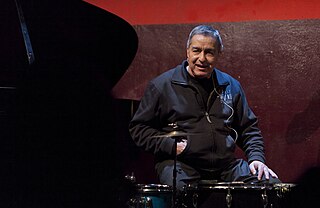
Can was a German experimental rock band formed in Cologne, West Germany, in 1968 by the core quartet of Holger Czukay (bass), Irmin Schmidt (keyboards), Michael Karoli (guitar), and Jaki Liebezeit (drums). The group cycled through several vocalists, including Malcolm Mooney (1968–70) and Damo Suzuki (1970–73), as well as various temporary members. Drawing from backgrounds in the avant-garde and jazz, Can incorporated minimalist, electronic, and world music elements into their often psychedelic and funk-inflected music. They have been widely hailed as pioneers of the German krautrock scene.
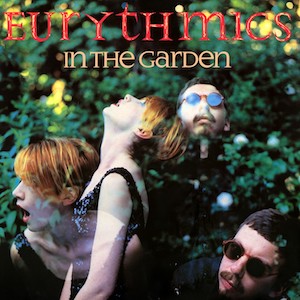
In the Garden is the debut studio album by the British new wave duo Eurythmics. It was released on 16 October 1981 by RCA Records.

Soundtracks is a compilation album by the Krautrock group Can. It was first released in 1970 and consists of tracks written for various films. The album marks the departure of the band's original vocalist Malcolm Mooney, who sings on two tracks, to be replaced by new member Damo Suzuki. Stylistically, the record also documents the transition from the psychedelia-inspired jams of their earliest recordings to the more meditative, electronic, and experimental mode of the studio albums that followed.

Soon Over Babaluma is the sixth studio album by the rock music group Can. This is the band's first album without a lead vocalist who does not play an instrument, following the departure of Damo Suzuki in 1973 during which he married his German girlfriend. The vocals are provided by guitarist Michael Karoli and keyboardist Irmin Schmidt. It is also their last album that was created using a two-track recorder.
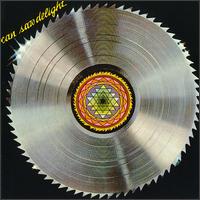
Saw Delight is the ninth Can studio album, and features two new band members who were ex-members of the band Traffic, Rosko Gee and Rebop Kwaku Baah, with Can's bassist Holger Czukay giving up the bass in favour of experimental effects.

Rite Time is Can's twelfth and final studio album, considered a reunion album because of the time elapsed since the band's previous album, Can, which had been released in 1979. The album consists of sessions recorded in the South of France in late 1986, edited extensively by the band over the course of subsequent years. Rite Time features the vocals of the band's original singer, Malcolm Mooney, who had left the group in 1970 after their debut album Monster Movie. Upon the album's initial release, "In the Distance Lies the Future" only appeared on the CD version, but it was subsequently featured on the 2014 vinyl reissue.

Delay 1968, or just Delay, is a compilation album of early outtakes by German experimental rock band Can during its work with singer Malcolm Mooney, including some of the band's earliest material. It notably features the song "The Thief", a slightly longer version of which had already been released officially on the United Artists compilation album Electric Rock in 1970. The track was later covered live by Radiohead.

Can Live Music is a double live album by the band Can, released in 1999 and recorded in the UK and West Germany between 1972 and 1977. It originally came as an item in the now out of print Can box set.
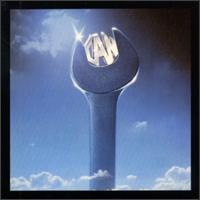
Can, also known as Inner Space, is the eleventh studio album by experimental rock band Can, released in 1979. Former bassist Holger Czukay's involvement with this album was limited to tape editing. It was Can's last album before the reunion album Rite Time, ten years later, and was released after the band's break-up.

Unlimited Edition is a compilation album by the band Can. Released in 1976 as a double album, it was an expanded version of the 1974 LP Limited Edition on United Artists Records which, as the name suggests, was a limited release of 15,000 copies. The album collects unreleased music from throughout the band's history from 1968 until 1976, and both the band's major singers are featured. The cover photos were taken in Pantheon room of The British Museum.
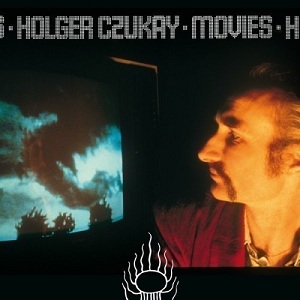
Movies is the second album by Holger Czukay, released in 1979 through Electrola.
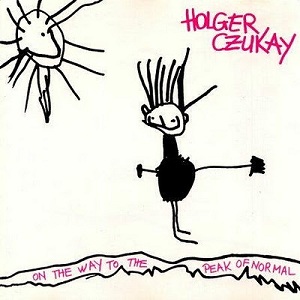
On the Way to the Peak of Normal is the third album by Holger Czukay, released in 1981 through Electrola.

Der Osten ist Rot is the fourth album by Holger Czukay, released in 1984 through Virgin Records.
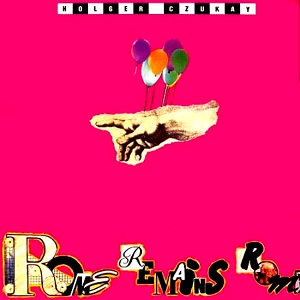
Rome Remains Rome is the fifth album by Holger Czukay, released in 1987 through Virgin Records. One single was released, Blessed Easter, which samples Pope John Paul II's Easter message.

Radio Wave Surfer is the sixth album by Holger Czukay, released in 1991 through Virgin Records.

Moving Pictures is the seventh album by Holger Czukay, released in 1993 through Mute Records.
Magic Box is the fourth album by the Norwegian band Bel Canto.



